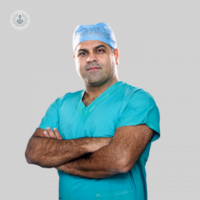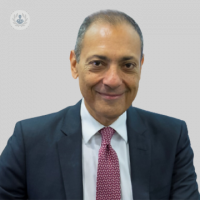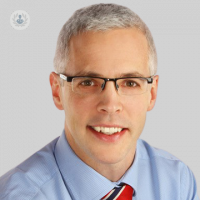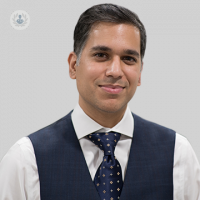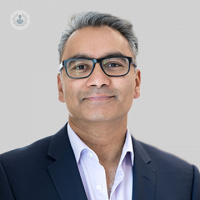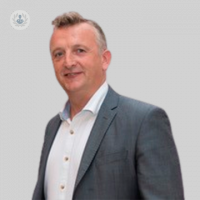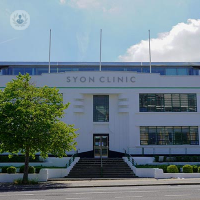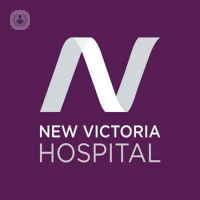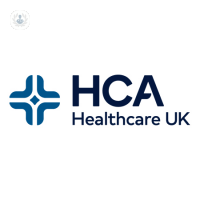What is endoscopic sinus surgery?
Sinus surgery was typically performed in the past using external incisions, which caused discomfort and a significant amount of pain to the patient. Nowadays, however, endoscopic sinus surgery tends to be the standard surgery performed for conditions such as chronic sinusitis. In endoscopic surgery, a small telescope with a camera on the end is inserted up the nose to view the area to be operated on. This surgery is used to treat injuries or abnormalities that alter normal nose function or surrounding structures. Surgery is done under general anaesthetic.
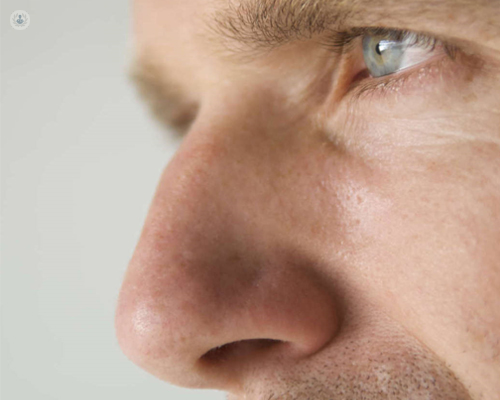
Why would you do it?
This surgery is done when there is chronic nasal and sinus inflammation, especially in chronic sinusitis, nasal polyps, or acute recurrent sinusitis that has not responded well to medical treatment. The treatment aims to restore normal nasal sinus function through a minimally invasive surgical procedure. This surgery is also used for septoplasty, turbinate surgery, closure of cerebrospinal fluid fistulas, and orbital decompression among others.
What does it involve?
A nasal decongestant should be used before dissecting the nose. A thin optic fibre is inserted in the nasal fossa to be able to view the sinus openings. With the right tools, the abnormal or obstructive tissue is resected. After surgery any bleeding points will be checked on, and in some cases nasal packing will be done to prevent haemorrhages, or silicone sheets will be placed to prevent the walls sticking to each other and forming anomalous scars.
Surgery tends to last between 1 and 3 hours depending on the complexity of the case. The nasal cavities are blocked with coagulant foam and special sponges that dissolve, or plugs that can be taken out easily.
How to prepare for it
Before surgery a sinus CT scan will be done to be able to plan the best form of treatment. Preoperative tests will also be carried out, as the surgery is done under general anaesthetic. The patient is normally in for a short stay surgery, they are only there one night. The patient should fast for 6 to 8 hours before the procedure.
Post-operative care
The nose is usually blocked, so the patient can’t breathe through it. Bleeding may occur, so a gauze is placed under the nose, although it’s not always needed. For the first 3-4 days, the patient is advised not to; smoke, drink alcohol, or physically exert themselves. Patients are also told to rest at home, avoid blowing their nose, and sit in a position that reduces blood flow to the head, head congestion, and bleeding. Patients should follow a soft food diet and drink plenty of fluids for throat dryness due to nasal packing.
It is not a painful procedure, but it can cause discomfort. Anti-inflammatory medication is generally prescribed. Antibiotics may also be prescribed to prevent an infection of the retained mucus.
11-13-2012 08-03-2023Endoscopic sinus surgery
Mr Karan Kapoor - Otolaryngology / ENT
Created on: 11-13-2012
Updated on: 08-03-2023
Edited by: Aoife Maguire
What is endoscopic sinus surgery?
Sinus surgery was typically performed in the past using external incisions, which caused discomfort and a significant amount of pain to the patient. Nowadays, however, endoscopic sinus surgery tends to be the standard surgery performed for conditions such as chronic sinusitis. In endoscopic surgery, a small telescope with a camera on the end is inserted up the nose to view the area to be operated on. This surgery is used to treat injuries or abnormalities that alter normal nose function or surrounding structures. Surgery is done under general anaesthetic.

Why would you do it?
This surgery is done when there is chronic nasal and sinus inflammation, especially in chronic sinusitis, nasal polyps, or acute recurrent sinusitis that has not responded well to medical treatment. The treatment aims to restore normal nasal sinus function through a minimally invasive surgical procedure. This surgery is also used for septoplasty, turbinate surgery, closure of cerebrospinal fluid fistulas, and orbital decompression among others.
What does it involve?
A nasal decongestant should be used before dissecting the nose. A thin optic fibre is inserted in the nasal fossa to be able to view the sinus openings. With the right tools, the abnormal or obstructive tissue is resected. After surgery any bleeding points will be checked on, and in some cases nasal packing will be done to prevent haemorrhages, or silicone sheets will be placed to prevent the walls sticking to each other and forming anomalous scars.
Surgery tends to last between 1 and 3 hours depending on the complexity of the case. The nasal cavities are blocked with coagulant foam and special sponges that dissolve, or plugs that can be taken out easily.
How to prepare for it
Before surgery a sinus CT scan will be done to be able to plan the best form of treatment. Preoperative tests will also be carried out, as the surgery is done under general anaesthetic. The patient is normally in for a short stay surgery, they are only there one night. The patient should fast for 6 to 8 hours before the procedure.
Post-operative care
The nose is usually blocked, so the patient can’t breathe through it. Bleeding may occur, so a gauze is placed under the nose, although it’s not always needed. For the first 3-4 days, the patient is advised not to; smoke, drink alcohol, or physically exert themselves. Patients are also told to rest at home, avoid blowing their nose, and sit in a position that reduces blood flow to the head, head congestion, and bleeding. Patients should follow a soft food diet and drink plenty of fluids for throat dryness due to nasal packing.
It is not a painful procedure, but it can cause discomfort. Anti-inflammatory medication is generally prescribed. Antibiotics may also be prescribed to prevent an infection of the retained mucus.
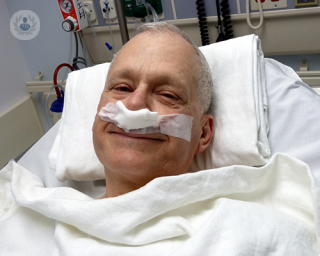

Who needs sinus surgery?
By Mr Julian Hamann
2024-11-21
The sinuses can be affected by a number of problems, but when is surgery needed? What is endoscopic sinus surgery? Join expert ENT surgeon Mr Julian Hamann and discover the dangers of sinusitis. See more


Breathing easy: The benefits of sinus surgery for adults
By Mr Ravinder Singh Natt
2024-11-20
Chronic sinus issues can significantly affect your quality of life and energy levels. While traditional treatments may offer temporary relief, they often don't tackle the root causes. Sinus surgery provides a lasting solution by addressing these underlying issues, improving airway function, drainage, breathing, and overall comfort. Here, we’ll outline some key benefits of sinus surgery to help you determine if it’s the right choice for your sinus health. See more
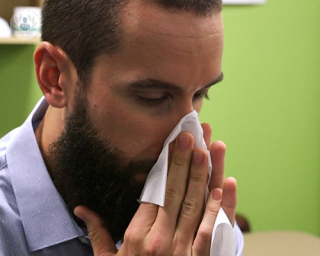

When should I consider endoscopic sinus surgery?
By Mr Karan Kapoor
2024-11-16
Read our latest article in which esteemed Horley-based ENT specialist, Mr Karan Kapoor, tells you if you could potentially be the ideal candidate for endoscopic sinus surgery. He also explains what the surgery entails, and reveals when this surgical procedure would be absolutely necessary. See more


Ask an expert: What’s causing my voice problem?
By Mr Vikram Dhar
2024-11-05
Persistent voice problems require investigation and careful treatment to restore the voice and rule out anything serious. In this article renowned consultant ENT and head and neck surgeon Mr Vikram Dhar offers expert insight on the most common voice problems and how to care for the voice. See more
Experts in Endoscopic sinus surgery
-
Professor Hesham Saleh
Otolaryngology / ENTExpert in:
- Rhinoplasty (nose job)
- Septorhinoplasty
- Endoscopic sinus surgery
- Septoplasty
- Sinusitis
- CSF Leak
-
Mr Nicholas Gibbins
Otolaryngology / ENTExpert in:
- Phonosurgery
- Endoscopic sinus surgery
- Dysphonia
- Dysphagia
- Thyroid gland surgery
- Voice disorders
-
Mr Irfan Syed
Otolaryngology / ENTExpert in:
- Sinusitis
- Rhinitis
- Endoscopic sinus surgery
- Septorhinoplasty
- Rhinoplasty (nose job)
- Septoplasty
-
Mr Samuel Jayaraj
Otolaryngology / ENTExpert in:
- Rhinoplasty (nose job)
- Sinusitis
- Tonsillitis
- Paediatric ENT
- Endoscopic sinus surgery
- Eustachian tube dysfunction
-
Professor Peter Andrews
Otolaryngology / ENTExpert in:
- Rhinoplasty (nose job)
- Septorhinoplasty
- Endoscopic sinus surgery
- Nasal septal perforation
- Endoscopic skull base surgery
- Sinusitis
- See all

Syon Clinic - part of Circle Health Group
Syon Clinic - part of Circle Health Group
941 Great West Rd, Brentford TW8 9DU
No existe teléfono en el centro.
By using the telephone number provided by TOP DOCTORS, you automatically agree to let us use your phone number for statistical and commercial purposes. For further information, read our Privacy Policy
Top Doctors

New Victoria Hospital
New Victoria Hospital
184 Coombe Lane West, Kingston upon Thames, KT2 7EG
No existe teléfono en el centro.
By using the telephone number provided by TOP DOCTORS, you automatically agree to let us use your phone number for statistical and commercial purposes. For further information, read our Privacy Policy
Top Doctors

London Bridge Hospital - part of HCA Healthcare
London Bridge Hospital - part of HCA Healthcare
27 Tooley St
No existe teléfono en el centro.
By using the telephone number provided by TOP DOCTORS, you automatically agree to let us use your phone number for statistical and commercial purposes. For further information, read our Privacy Policy
Top Doctors
-
Syon Clinic - part of Circle Health Group
941 Great West Rd, Brentford TW8 9DU, West LondonExpert in:
- Allergies nose and ears
- Allergy Dermatitis
- Allergy
- Clinical analysis
- Anxiety
- Digestive
-
New Victoria Hospital
184 Coombe Lane West, Kingston upon Thames, KT2 7EG, South LondonExpert in:
- Cardiology
- General Surgery
- Orthopaedic surgery
- Breast augmentation
- Pain management
- Spine
-
London Bridge Hospital - part of HCA Healthcare
27 Tooley St, Central LondonExpert in:
- 24-hour service
- Cardiology
- Minimal access surgery (keyhole surgery)
- Orthopaedic surgery
- Cardiovascular disease
- Gastroenterology
- See all
- Most viewed diseases, medical tests, and treatments
- Migraine
- Lumbar herniated disc
- Spinal surgery
- Minimal access surgery (keyhole surgery)
- Head and neck cancer
- Neck lump
- Parkinson's disease
- Botulinum toxin (Botox™)
- Ulnar nerve surgery
- Carpal tunnel surgery
